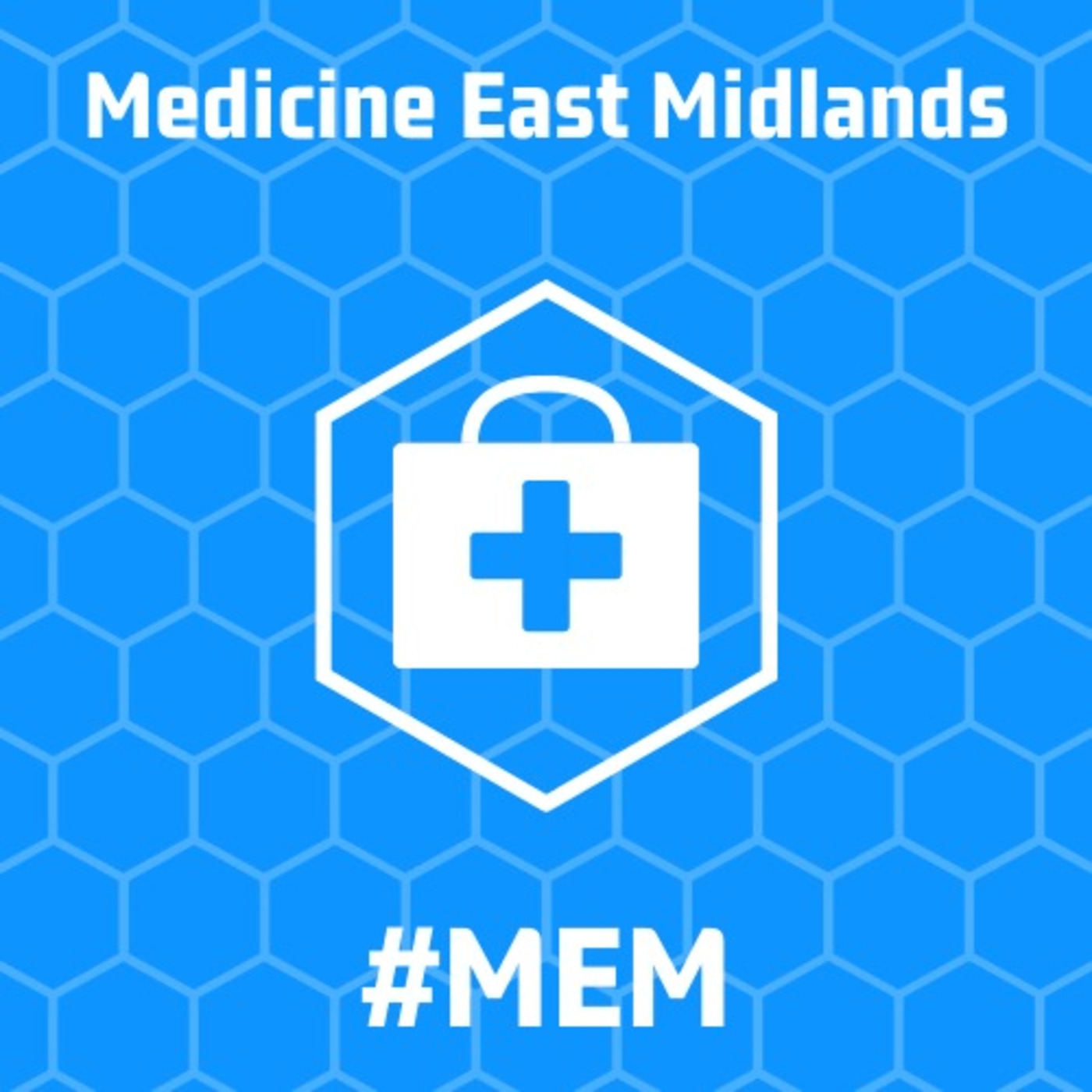

MEM Cast
Medicine East Midlands
A series of education podcasts for core medical trainees and medical students covering the whole curriculum for the MRCP exam.
Episodes
Mentioned books

Jul 7, 2023 • 15min
Episode 168: Dermatomyositis
Join us in the week’s episode where Rheumatology registrar, Dr Innocent Munzeiwa, gives us the run through on Dermatomyositis.

Jun 30, 2023 • 8min
Episode 170: Antiemetics - part 2
One of our palliative care registrars in the East Midlands, Dr Connie Gillman, talks about antiemetics - in this episode we discuss special circumstances, contraindications and side effects.

Jun 24, 2023 • 19min
Episode 169: Haemodialysis emergencies
We are delighted to be joined once again by Professor James Burton, Nephrology Consultant in Leicester to discuss common issues in haemodialysis patients that you might encounter during your on calls. Enjoy listening.

Jun 16, 2023 • 18min
Episode 167: Chest Drain
In this episode, our host, Dr Demi Wright, talks us through the in’s and out’s of chest drains.

Jun 9, 2023 • 18min
Episode 166: Antiemetics - part 1
It gives us great pleasure to introduce Dr Connie Gillman, a palliative care registrar in the East Midlands who is going to shed some light on antiemetics this week. We will be discussing how to choose the right one for your patient. Thinking about mechanisms of action, receptors and side effects... give it a listen and leave us any feedback in the comments!

Jun 2, 2023 • 17min
Episode 165: Interstitial lung disease management
We are joined by Dr Fasi Khan, Respiratory Consultant at Glenfield Hospital for the second part of our interstitial lung disease podcast. We discuss management, focusing on IPF. Enjoy listening.

May 26, 2023 • 19min
Episode 164: Lumbar Puncture
Join us in this week’s episode as Dr James Morris joins us again to talk to us about Lumbar punctures.

May 19, 2023 • 18min
Episode 163: PE followup and CTEPH
In this episode, respiratory registrar and MEMcast host Dr Rachel Saville explains an approach to PE followup. Find out how to assess a patient's risk for future PEs, and why there is a shift towards recommending lifelong anticoagulation in unprovoked PE. Finally, you will learn about one of the complications of PE, CTEPH. Happy listening!

May 12, 2023 • 21min
Episode 162: How to Prepare for PACES
Join us in this week’s podcast, where MEMCast hosts, Dr Rachel Saville, Dr Cristina Cusu and Dr Demi Wright talk about their experiences and advice for preparing for the PACES examination.

May 6, 2023 • 21min
Episode 161: Introduction to ILD
We are delighted to welcome Dr Fasi Khan, Consultant Respiratory Physician in Glenfield Hospital, Leicester. Dr Khan will discuss interstitial lung disease with us, focusing on IPF diagnosis and investigations. Enjoy listening.


